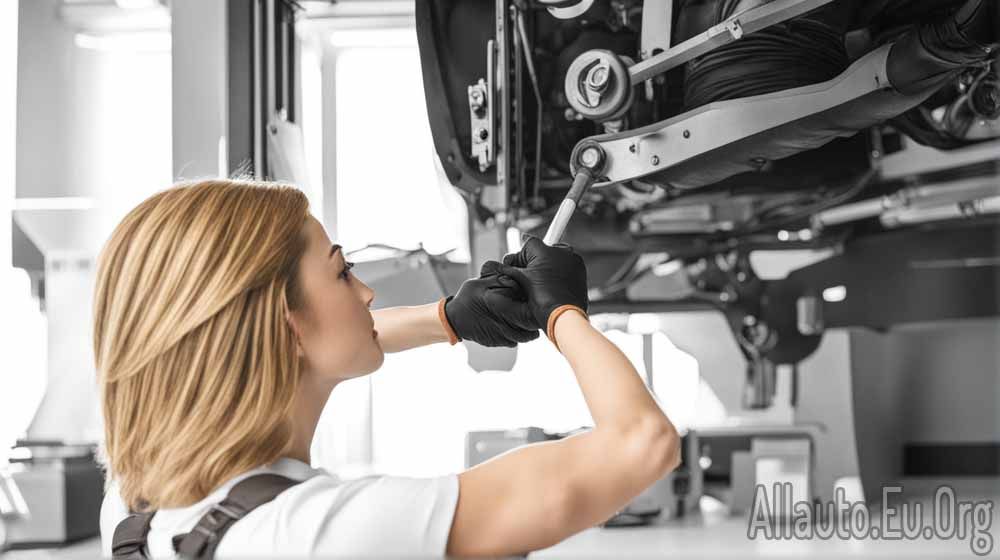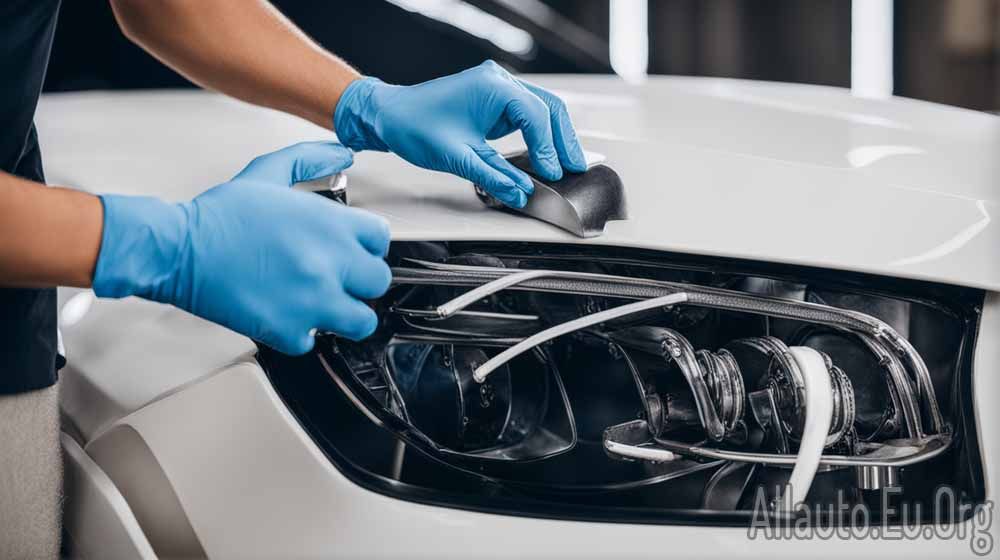

How to Properly Maintain Your Auto's Suspension

As a car owner, one of the most important aspects of maintaining your vehicle is to take care of the suspension system. The suspension system plays a critical role in ensuring that your car remains stable, comfortable and safe to drive. Neglecting your suspension system can lead to costly repairs, poor performance, and even accidents.
In this article, we'll take a look at some tips on how to properly maintain your auto's suspension to ensure its longevity and optimal performance.
-
Regular Inspection
Regular inspection is essential to maintaining your suspension system. Check your vehicle's suspension system for any signs of wear and tear, such as worn-out bushings or cracked mounts. Inspect the shocks and struts for any leaks or signs of damage. Pay attention to any unusual noises or vibrations while driving as these could be indicators of a potential problem.
-
Keep Your Tires In Good Condition
Your tires are an integral part of your suspension system. Worn-out tires can cause uneven wear and tear on your suspension system, leading to potential damage. Make sure to keep your tires properly inflated, rotated and balanced. Check for any signs of wear, such as bald spots or cracks, and replace them if necessary.
-
Regular Wheel Alignment
Wheel alignment is crucial to your suspension system's proper function. Misaligned wheels can cause uneven wear and tear on your tires, leading to potential damage to the suspension system. Regular wheel alignment ensures that your wheels are aligned correctly and can help prevent future problems.
-
Keep Your Suspension System Clean
Keeping your suspension system clean can help prevent corrosion and rust. Dirt and debris can accumulate on the suspension system, leading to potential damage. Regularly washing your vehicle and cleaning the suspension system can help prevent corrosion and rust.
-
Replace Worn-Out Components
Over time, your suspension system's components can wear out and become damaged. Worn-out components can affect your car's performance and safety. Regularly inspect your suspension system for any signs of wear and replace any worn-out components as necessary.
-
Check Your Suspension System After Hitting A Pothole
Hitting a pothole can cause damage to your suspension system. After hitting a pothole, make sure to inspect your suspension system for any signs of damage or wear. Look for any leaks, cracks, or bent components. If you notice any damage, have your suspension system inspected by a professional.
-
Follow Your Manufacturer's Recommendations
Your vehicle's manufacturer provides recommendations for maintaining your suspension system. Follow your manufacturer's recommendations for maintenance, such as changing your shocks and struts at the recommended interval. These recommendations can help prevent potential problems and prolong the life of your suspension system.
-
Drive Responsibly
Your driving habits can have a significant impact on your suspension system's lifespan. Avoid hitting potholes, curbs, and other obstacles whenever possible. Also, avoid driving on rough roads at high speeds. Over time, these actions can cause significant wear and tear on your suspension system.
-
Keep Your Car Lightly Loaded
Overloading your car with heavy items can cause additional stress on your suspension system. Be mindful of the weight you're carrying in your car, and try to keep it as light as possible. Removing unnecessary items from your car can also help improve your car's fuel economy.
-
Address Issues Promptly
If you notice any issues with your suspension system, such as strange noises, vibrations, or handling problems, it's essential to address them promptly. Ignoring these issues can lead to more significant problems down the line and potentially cause safety hazards.
In conclusion, properly maintaining your auto's suspension system is crucial to ensuring its longevity and optimal performance. Regular inspection, keeping your tires in good condition, regular wheel alignment, keeping your suspension system clean, replacing worn-out components, checking your suspension system after hitting a pothole, and following your manufacturer's recommendations are all essential steps to maintaining your suspension system. By following these tips, you can ensure that your suspension system remains in top condition, providing a safe and comfortable driving experience.
By following these tips and maintaining your auto's suspension system, you can prolong its lifespan and keep your car performing at its best. Regular maintenance can help prevent costly repairs, improve your car's handling and stability, and ensure your safety while driving. Remember to consult your vehicle's owner manual and seek professional assistance if you're unsure about any aspect of maintaining your suspension system.
In conclusion, maintaining your auto's suspension system is crucial to ensuring its longevity, optimal performance, and your safety while driving. Regular inspection, keeping your tires in good condition, regular wheel alignment, keeping your suspension system clean, replacing worn-out components, checking your suspension system after hitting a pothole, following your manufacturer's recommendations, driving responsibly, keeping your car lightly loaded, and addressing issues promptly are all essential steps to maintaining your suspension system. By following these tips, you can prolong your suspension system's lifespan, avoid costly repairs, and improve your car's handling and stability. Remember to consult your vehicle's owner manual and seek professional assistance if you're unsure about any aspect of maintaining your suspension system.
Tags
Latest Articles

Most Read
All Tags
Subscribe
Donate
Please consider supporting our efforts.
© 2023 All-Auto.ga All rights reserved.










